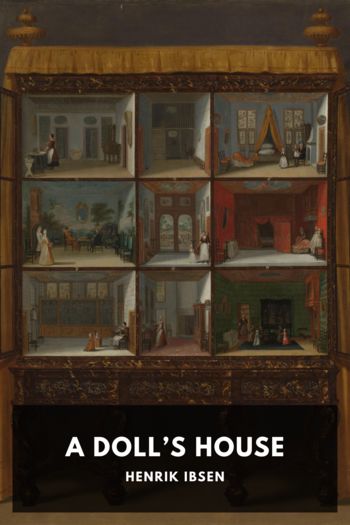Hitler’s Pre-Emptive War: The Battle for Norway, 1940 Henrik Lunde (general ebook reader txt) 📖

- Author: Henrik Lunde
Book online «Hitler’s Pre-Emptive War: The Battle for Norway, 1940 Henrik Lunde (general ebook reader txt) 📖». Author Henrik Lunde
While the German attack came as a surprise to the 1/12th Infantry, there were indications in the early morning hours that something was afoot. There were reports during the night of enemy patrol activity and between 0400 and 0600 hours reports of enemy forces along Route 50. The final report, shortly after 0600 hours, indicated that the Germans had occupied the empty Norwegian defensive positions. It was obvious that the security measures taken by the Norwegians had been inadequate.
The Norwegians apparently had no plans to meet an attack other than to reoccupy the defensive positions they had abandoned the night before. They made the initial move in this direction when they came under intense fire, direct and indirect, from the high ground on the south side of the valley. At the same time, the Germans launched their ground attack from the west. Company 2, located on the Moen farms, was the first Norwegian unit to feel the brunt of the German attack. The troops exited their quarters and fought from various positions around the farmhouses. It was still blowing a gale with heavy snow squalls and the visibility varied from good to almost zero. The German center column engaged Co 2 frontally while the other two slipped around its flanks. The Norwegians were under fire from several directions and the company commander, Captain Nils Øvreaas, was among the first to be killed.
After the fight had lasted for a while, the Norwegian company fragmented into small groups. Some continued the fight while others surrendered. Still others tried to withdraw up the hill towards Fjordbotneidet but heavy enemy machinegun fire made this difficult. A number of troops escaped by following creek beds that gave them some cover. Forward elements of the Alta Bn on Fjordbotneidet tried to help by opening fire but it is possible, in the limited visibility where it was difficult to discern friend from foe, that the fire caused more harm to their comrades than to the enemy. Companies 1 and 3 believed they received fire from the Alta Bn on Fjordbotneidet during the fighting and Captain Mitlid sent a messenger to Lieutenant Colonel Dahl in the morning of April 26 asking that all firing into the valley stop.
Company 1, located at the eastern farms and to the north of the tourist station, tried to retake its defensive positions, now in German hands. The troops were under heavy fire as they tried to work their way up the steep hillside and the commander, Captain Thormod Casper Mitlid, was wounded and evacuated. The Norwegian attack faltered. Some of the troops dug in while others withdrew back into the valley.
Major Bøckman had not noticed any efforts by the Alta Bn, which was supposed to protect his right flank, to come to his assistance. He sent his adjutant to the telephone station to try to establish contact. He did not locate his CP where he could communicate with both the Alta Bn and General Fleischer. The adjutant reached the house where the telephone was located but the telephone connection was severed by German fire.
The hillside leading to Fjordbotneidet was swept by German machinegun fire and the lieutenant had to give up trying to contact the Alta Bn. He gave Co 3’s commander, Captain Hilmar Mjøen, an order from Bøckman to attack and drive the Germans from Route 50. The adjutant was wounded on his way back to the battalion CP.
Major Bøckman had meanwhile ordered Captain Otto Ludvig Nyquist, the commander of Co 4 to support Co 3 in its attack and to place fire on the Germans attacking from the west. Captain Nyquist was wounded on his way back to his unit but continued to coordinate the fire support with Captain Mjøen. He had just sat down to dress his wound when a mortar shell killed him. Norwegian machinegun fire succeeded in temporarily stopping the Germans near the eastern Moen farms.
Company 3, minus one platoon, advanced towards its old positions along Route 50, now occupied by Germans from Co 2, 139th Regiment. The going was slow as the attackers were under continued direct and indirect fire. A flank attack by one platoon made good progress until it reached open terrain and was stopped by enemy fire from three directions.
The Norwegian attack on Co 2’s position caused a critical situation for the Germans. They were exhausted from fighting at Lapphaugen and a night withdrawal in a snowstorm. Every man was committed to bring the Norwegian attack to a halt. The fighting was vicious and at close quarters. The attack faltered under heavy crossfire, and the Norwegians withdrew.
Under cover of a heavy snow squall, the Germans in the Moen area managed to close in on some of the farm buildings still occupied by Norwegian troops. Some were captured and the Norwegians claimed that the Germans used these captives and civilians as shields in their advance against Co 4. There were other reports of prisoners and civilians used as shields. The Germans denied the charge but admitted that prisoners were brought forward behind the attacking forces since moving them to the rear was impossible.
The fighting began to subside around noon. German medics, under white flags, moved onto the battlefield to remove the dead and wounded. Through a returned prisoner, the Germans requested Norwegian medical





Comments (0)